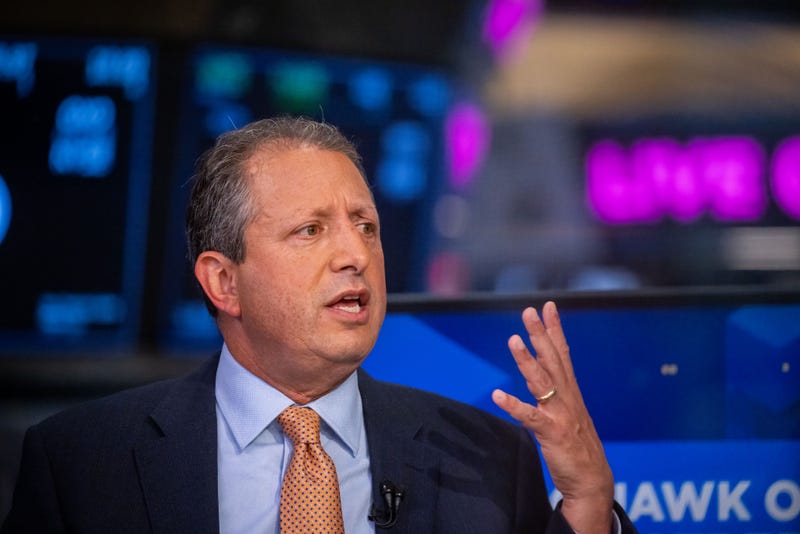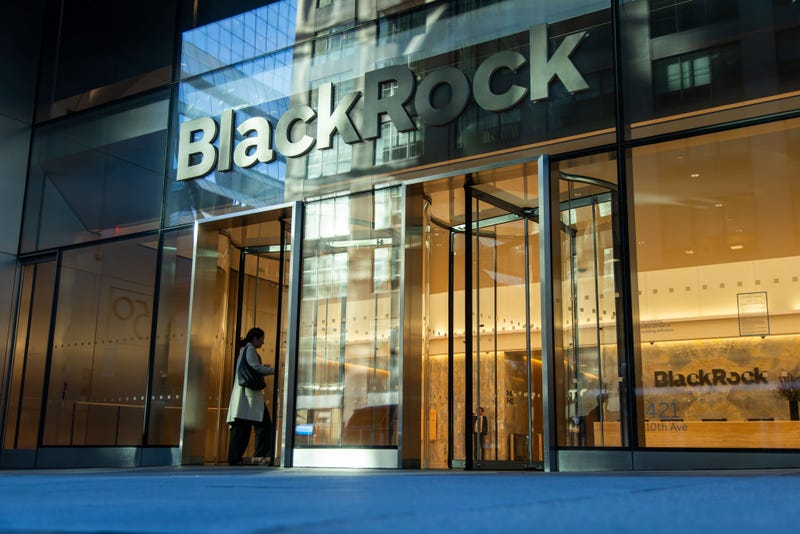
NEW YORK (BLOOMBERG) — New York City Comptroller Brad Lander is urging three of the city’s pension funds to drop BlackRock Inc. because of “inadequate” climate plans, the latest move to penalize investment firms for failing to tackle global warming.
The guidance to reject BlackRock, the city’s largest money manager overseeing $42.3 billion of index funds for the pensions, follows a review of the firm’s efforts to press companies to decarbonize. Lander said Wednesday he’s also asking plan trustees to terminate much smaller mandates with Fidelity Investments and PanAgora Asset Management.
BlackRock has scaled back “climate engagement in ways that put our investments at risk needlessly,” Lander said in a phone interview. “Climate risk is financial risk. You can see it all around you in increased number of flash floods and wildfires.”
In response, BlackRock Managing Director Armando Senra wrote in a letter to Lander that he is alleging that the firm is “abdicating its financial duty and putting New York City’s pensions at risk. These statements are another instance of the politicization of public pension funds, which undermines the retirement security of hardworking New Yorkers.”
Lander’s recommendations must still be approved by the trustees of the pension boards and then depending on the decision, New York-based BlackRock will be able to rebid for the index-fund business. Lander’s proposal is one of his last acts before his term as comptroller ends in a few weeks. Incoming Mayor Zohran Mamdani will be sworn in on Jan. 1 and his appointees will have some influence over the city’s retirement system.
BlackRock has been attacked by both Republicans and Democrats over its efforts on climate change. GOP politicians criticized Chief Executive Officer Larry Fink for years for championing environment and social strategies. But then when BlackRock pulled back more recently, Democrats including Lander scrutinized the world’s largest money manager for not doing enough to make corporate America greener.
Lander’s office said the Trump administration’s changes to disclosure rules led BlackRock to stop pressing companies on environmental goals when it has a stake exceeding 5%.
The same reasoning was used to suggest the dismissal of Fidelity, which oversees $384 million for the pension plans. It also said PanAgora, which like Fidelity is based in Boston, has failed to pressure companies to decarbonize. The firm has been managing $358 million for the New York City funds.
Fidelity, which oversees $6.8 trillion, and PanAgora, which manages about $33 billion, haven’t responded to requests for comment.
Lander is recommending that the city’s pension investments managed by Fidelity and PanAgora be dispersed across other strategies.

Lander’s office said in its statement that State Street Corp., one of BlackRock’s main rivals in index funds, had a “more robust approach” to engaging with companies on climate. The comptroller asked money managers of the city’s pension funds in April to submit written reports describing their net zero plans, including how they intend to exhort companies in their investment portfolios to “drive real economy decarbonization” and push executives to align capital spending with climate targets.
At the time, Lander said the pensions would consider dropping any asset managers that “either refuse to submit plans or submit plans that don’t meet our standard.” In all, Lander accepted 46 of the 49 environmental plans submitted by investment firms.
New York City has five pension plans, which together have about $300 billion of assets. The three impacted by Lander’s judgment are the New York City Employees’ Retirement System (NYCERS), Teachers’ Retirement System (TRS), and Board of Education Retirement System (BERS). He’s recommending the three funds end their ties to BlackRock; that TRS removes Fidelity as manager; and that NYCERS and TRS terminate PanAgora.
Beside the $42.3 billion in index funds, BlackRock also manages a total of about $9 billion in private infrastructure, emerging markets equity, treasuries and mortgage investments for the three pension plans.
Lander, who recently mounted an unsuccessful bid for New York City mayor, will be out of elected office after Dec. 31, when his term as comptroller conclude. He is considering running for Congress in a primary challenge in 2026 against Democratic Representative Dan Goldman, who represents lower Manhattan and parts of Brooklyn.
Under Lander’s leadership, the retirement system has been among those at the forefront of tackling climate change through its investments. Over the past decade, the three funds have taken steps including divesting from thermal coal in 2016, voting in 2021 to move away from fossil fuel reserves in their public equities and corporate bond portfolios, and committing to achieving net zero emissions by 2040.
Lander’s latest suggestions come amid an increasingly combative political environment. Democratic state officials from New York to California sent letters to asset managers in August, urging them to resist pressure from the Trump administration and GOP lawmakers and to fully assess risks tied to global warming, supply chains and corporate governance. They said Republicans are misrepresenting “the true meaning of fiduciary duty” by ignoring long-term climate threats.
The coordinated Democratic push follows more than three years of Republican attacks against environmental, social and governance investing. They have called ESG a threat to capitalism. GOP officials launched investigations, introduced anti-ESG state bills — many of which have failed — and restricted some firms from doing business in their states.
